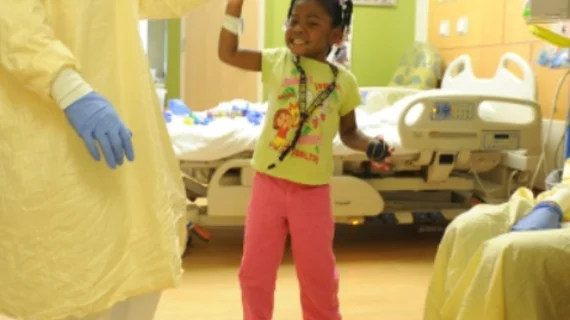ACR applauds FDA about-face on use of iodinated contrast in children
Following back-and-forth discourse on protocols pertaining to monitoring thyroid function in children who have received iodinated contrast media (ICM) during imaging, the American College of Radiology and U.S. Food and Drug Administration have reached a consensus.
According to the most recent update, the FDA now recommends monitoring children who have received intravenous ICM for thyroid disfunction only if they are considered high risk. Children born prematurely, at a very low birth weight or who have other underlying medical conditions that could affect thyroid function would fall under this category, the update indicates.
This is a change from the FDA’s stance on the topic last year. In March of 2022, the FDA recommended that providers monitor the thyroid function of all children age 3 years and younger after the administration of intravenous ICM. The statement indicated that certain children—newborns, those with low birth weight or those with cardiac conditions—are at an increased risk of a temporary decrease in thyroid hormone levels.
In response, the ACR issued a statement suggesting that the FDA failed to provide convincing evidence supporting the move. The statement also brought to light some of the unintended consequences of the FDA’s safety warning—increased parental anxiety, increased use of gadolinium-based contrast for MRI procedures that could require pediatric sedation, and delayed diagnosis for patients who undergo unenhanced CT due to the perceived risk of iodinated contrast use.
Rather than universal testing, the FDA now recommends that “decisions about thyroid monitoring following administration to children 3 years and younger be individualized based on each child’s risk factors.”
The ACR applauded the decision. In response to the change, Jonathan R. Dillman, MD, MSc, chair of the ACR Pediatric Quality and Safety Committee and member of the ACR Committee on Drugs and Contrast Media, thanked the FDA “for thoughtfully reconsidering this matter and adopting a more patient-centered and tailored response.”
“The FDA’s recent action allows us to proactively protect the at-risk children, while allowing those unlikely to benefit from this well-intended action to avoid unnecessary care, travel, expense, and concern,” Dillman said in a statement.
To view the most recent update, click here.

